Modern addiction recovery programs equip you with multiple evidence-based tools for lasting sobriety. You’ll find medication-assisted treatments that reduce cravings, alongside digital health technologies like recovery apps and virtual therapy sessions. Evidence-based behavioral therapies help you develop coping skills, while wearable devices monitor stress levels and potential triggers in real-time. When combined with holistic wellness approaches, these tools create an extensive framework for your recovery path ahead.
The Role of Medication-Assisted Treatment (MAT)

Medication-Assisted Treatment (MAT) represents a clinically proven approach that combines FDA-approved medications with counseling to treat substance use disorders. Through carefully structured medication oversight policies, MAT helps stabilize your brain chemistry, reduce cravings, and prevent opioid-related euphoria. Social functioning dramatically improves with this treatment approach. Research demonstrates that replacing dangerous opioids with controlled medications allows patients to maintain normal daily activities.
You’ll find that medications like methadone, buprenorphine, and naltrexone work to normalize physical functions disrupted by substance use. Non-medical opioid use ranks particularly high in Colorado, making MAT programs essential in the region. The evidence is compelling: studies show heroin use drops from 52.1% to 20.4%, while anxiety and depression rates decrease by more than half. Community-based MAT access has expanded treatment options, particularly in rural areas where programs like Colorado’s initiative have reached over 1,000 previously underserved patients. This extensive approach not only reduces overdose risks but also improves your chances of maintaining long-term recovery through improved behavioral health engagement.
Digital Health Technologies Transforming Recovery
While traditional recovery methods remain essential, digital health technologies have revolutionized addiction treatment by expanding access and improving outcomes across diverse populations. You’ll find that 85% of treatment centers now integrate digital tools, from remote therapy platforms to social media facilitated support groups. These innovations include mobile apps for tracking recovery progress, artificial intelligence guided recommendations for personalized care, and virtual cognitive behavioral therapy modules. About 33.5% of organizations use at least one type of digital health technology for treating opioid use disorder. Online platforms provide 24/7 accessibility to recovery resources and support during critical moments of vulnerability. Only three SUD DTx have received federal regulatory approval to date, though many more are in development. Research shows these digital solutions can double abstinence rates and drastically reduce hospitalizations. They’re particularly effective when combined with specialist care, as organizations with addiction medicine experts show 32.3% higher adoption rates. While privacy concerns and accessibility gaps persist, especially in rural areas, the integration of FDA-authorized digital therapeutics and AI-driven personalization continues to transform how you can access and maintain recovery support.
Evidence-Based Behavioral Therapies

Because effective addiction recovery requires a multifaceted approach, evidence-based behavioral therapies form the foundation of modern treatment protocols. You’ll find that Cognitive-Behavioral Therapy (CBT) and Dialectical Behavior Therapy (DBT) work together to address both thought patterns and emotional regulation. Through social skills training and structured exercises, you’ll learn to identify triggers and develop healthy coping mechanisms. Dual diagnosis treatment ensures that both addiction and mental health conditions receive concurrent care. These approaches have been rigorously tested through scientific research to prove their effectiveness.
When combined with Medication-Assisted Treatment, these therapies greatly improve your chances of maintaining long-term sobriety. Family treatment approaches strengthen your support system while enhancing communication patterns. You’ll also benefit from holistic therapies like meditation and nutritional counseling, which complement your relapse prevention planning. This integrated approach equips you with extensive tools to manage cravings, regulate emotions, and build lasting recovery skills.
Wearable Devices and Real-Time Monitoring
Modern wearable devices offer you continuous tracking of essential signs like heart rate, sleep patterns, and stress levels to help identify potential relapse triggers before they increase. You’ll receive real-time alerts when your biometric data indicates heightened stress or risk states, prompting you to engage in immediate coping strategies or reach out for support. With virtual communities available through these devices, you can stay connected to a supportive network of peers in recovery. These smart recovery systems can integrate with your treatment plan, enabling your care team to monitor your progress and adjust interventions based on personalized data patterns. Transdermal alcohol sensors provide instant detection of alcohol consumption, helping both patients and healthcare providers prevent potential relapses. The technology enhances overall recovery success by allowing medication adherence monitoring through automated tracking systems.
Stress Detection and Alerts
How can technology detect the subtle warning signs of relapse before they escalate? Modern wearable devices analyze predictive stress patterns through multiple data streams, including heart rate variability, sleep quality, and biochemical markers. These sophisticated systems create personalized intervention timelines based on your unique physiological responses to stress.
When your metrics exceed predetermined thresholds, devices immediately trigger alerts to both you and your care team. You’ll receive actionable prompts for stress management techniques, like guided breathing exercises or contacting your support network. Advanced features like Garmin’s Body Battery and Whoop’s recovery metrics help you identify periods of vulnerability when you’re most susceptible to triggers. Using electrodermal activity, wearable sensors can accurately differentiate between general stress and substance craving events to provide more targeted interventions. This extensive monitoring approach enables early intervention by tracking multiple stress indicators simultaneously, potentially preventing relapse before traditional warning signs appear.
Continuous Biometric Data Collection
Continuous biometric monitoring through wearable devices serves as your 24/7 recovery companion, tracking essential health metrics that can signal potential relapse risks. Advanced sensors measure your heart rate, oxygen levels, sleep patterns, and body temperature, while providing real-time insights into your physical and emotional well-being.
Modern wearables like smartwatches and biosensors integrate seamlessly with recovery apps, creating detailed health profiles while adhering to strict privacy concerns and consent protocols. You’ll receive personalized alerts when physiological changes suggest increased vulnerability, enabling proactive intervention before cravings intensify. These devices also monitor activity levels and stress markers, helping identify sedentary behaviors that might indicate depression or withdrawal symptoms.
The data collected supports your treatment team in making informed decisions about your recovery plan, ensuring interventions remain customized to your specific needs.
Smart Recovery Support Systems
Smart recovery support systems represent a sophisticated integration of wearable technology and real-time monitoring that builds upon basic biometric tracking. You’ll find these systems actively supporting your recovery through personalized interventions and mindful moment practices while connecting you to peer support communities. Advanced systems like Pretaa provide 24/7 addiction recovery monitoring for comprehensive patient support. Innovative devices can help identify substance use triggers through continuous health monitoring.
| Device Type | Primary Function | Alert Trigger | Intervention |
|---|---|---|---|
| Smartwatch | Heart rate/stress monitoring | Elevated readings | Breathing exercises |
| Biosensor | Physical health tracking | Abnormal crucial data | Medical check-in |
| Fitness tracker | Activity monitoring | Sedentary periods | Movement prompts |
| Alcohol sensor | Substance detection | Presence detected | Immediate support |
These systems adapt to your unique recovery pathway by analyzing your biometric data and automatically adjusting therapeutic recommendations. When combined with mobile apps, they provide real-time visualization of your progress and connect you with virtual support networks during critical moments.
Integrating Holistic Wellness Approaches
Recent advances in addiction recovery have demonstrated that integrating holistic wellness approaches provides an extensive foundation for lasting sobriety. Through mind body awareness techniques and cultural healing practices, you’ll engage with evidence-based therapies that address both physical and psychological aspects of recovery.
- Combine traditional counseling with mindfulness practices to build resilience against triggers
- Utilize acupuncture and Chinese medicine to manage withdrawal symptoms
- Incorporate nutrition counseling and exercise therapy to repair cellular damage
- Engage in creative therapies like art and music for emotional processing
- Practice spiritual exploration through energy-based healing methods
Research shows these integrated approaches considerably improve quality of life and reduce relapse rates. You’ll develop sustainable coping strategies while addressing underlying traumas, establishing healthy routines, and building a strong support network for long-term recovery success.
Modern Assessment and Progress Tracking Tools

You’ll find that today’s digital progress monitoring systems revolutionize addiction recovery tracking through real-time data collection and AI-driven analysis. Your recovery odyssey can be precisely measured using personalized assessment protocols that combine validated scales, biometric data, and standardized severity metrics. These integrated tools provide you and your care team with all-encompassing insights across multiple domains, from substance use patterns to psychological health, enabling more targeted and effective treatment adjustments.
Digital Progress Monitoring Systems
Digital progress monitoring systems represent a transformative advancement in addiction recovery, combining mobile applications, wearable devices, and remote monitoring platforms to create all-encompassing recovery tracking solutions. Through customized data visualization and proactive relapse prevention strategies, you’ll gain thorough insights into your recovery path.
- Integrate wearable technology to track crucial physiological markers and sleep patterns, enabling early intervention
- Monitor emotional states and triggers through digital journaling with structured self-reflection prompts
- Access real-time progress tracking via mobile apps that document sobriety milestones and daily achievements
- Utilize AI-powered analytics to identify potential relapse risks based on behavioral and biometric patterns
- Connect with care teams through secure cloud platforms for continuous support and treatment plan adjustments
These digital tools provide systematic monitoring while maintaining privacy and fostering accountability in your recovery process.
Personalized Assessment Protocol Integration
Building upon digital monitoring advances, personalized assessment protocols now offer an all-encompassing framework for understanding and addressing individual recovery needs. Through client-centered goal formulation and multidisciplinary assessment integration, you’ll experience a comprehensive evaluation that considers your biological, psychological, and social factors.
| Assessment Type | Key Components | Treatment Impact |
|---|---|---|
| Bio-Medical | Genetic markers, Physical health | Medication protocol selection |
| Psychological | Mental health screenings, Trauma history | Therapy method matching |
| Social-Environmental | Family dynamics, Support systems | Support network integration |
Your treatment plan adapts as you progress, incorporating evidence-based interventions customized to your unique circumstances. This dynamic approach guarantees that your recovery journey addresses root causes while building resilience through skill amplification and personalized coping strategies.
Frequently Asked Questions
How Long Does It Typically Take to Complete a Modern Addiction Recovery Program?
Your program duration varies considerably based on your individual recovery timeline and specific needs. While basic programs typically run 30-90 days, you’ll find that treatment length depends on factors like addiction severity, mental health needs, and personal circumstances. You might need anywhere from a month to over a year, progressing through different phases including detox, intensive therapy, and aftercare. Your insurance coverage may also influence your program length.
What Percentage of People Maintain Sobriety After Completing These Modern Programs?
You’ll find that sobriety maintenance rates vary considerably over time, with about 89% maintaining sobriety at one month, decreasing to 69% by six months post-treatment. Your success rates improve immensely when you engage in relapse prevention strategies and establish long-term support networks. Research shows that longer treatment durations (3+ years) lead to better outcomes, and you’re more likely to maintain sobriety if you participate in extensive aftercare programs.
Are Insurance Companies Covering These New Technological Addiction Treatment Approaches?
Insurance coverage for technological addiction treatments is evolving. You’ll find that private insurers must provide equal coverage for behavioral health, including outpatient and medication-assisted treatments. Medicare now covers FDA-approved digital therapeutics for mental health conditions, though specific addiction-focused digital tools aren’t yet widely covered. Through state Medicaid programs, you can access diverse treatment options, but coverage for digital tools varies by state. Always verify specific coverage with your insurance provider.
How Do Traditional 12-Step Programs Integrate With These Modern Recovery Tools?
You’ll find that modern technology thoughtfully augments traditional 12-step programs rather than replacing them. Through evidence-based integration, digital tools complement face-to-face meetings by providing 24/7 support, tracking capabilities, and real-time intervention alerts. Your recovery expedition can benefit from these holistic recovery approaches, as they work alongside established 12-step principles to offer expanded accountability, accessibility, and personalized support when you’re between meetings or traveling.
What Happens if Technology-Based Recovery Tools Become Unavailable During Treatment?
If you’ve built a reliance on technological aids during recovery, their sudden unavailability can disrupt your treatment momentum. You’ll need to quickly shift to alternative backup recovery strategies, including increased in-person meetings, paper-based journaling, and stronger face-to-face support networks. While this change may feel challenging, it’s vital to keep in mind that traditional recovery methods remain effective. You can maintain your progress by adapting and strengthening your non-digital coping mechanisms.






